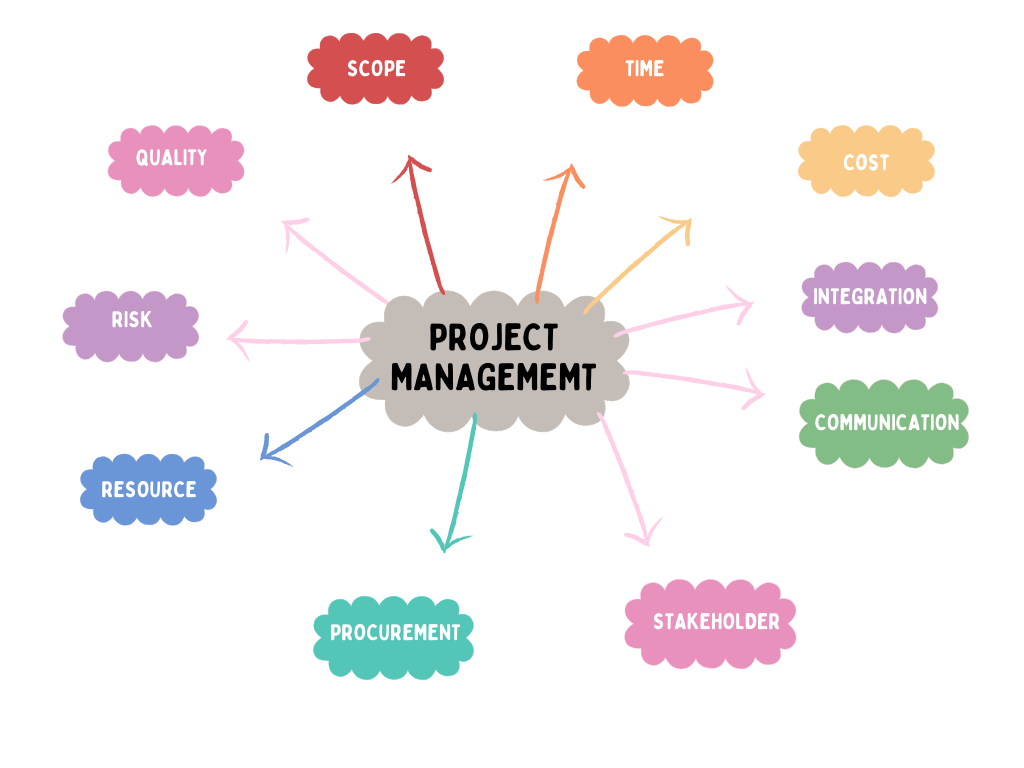What are the fundamentals of project management?
"Project Management Fundamentals: Essential Guide for Success"
PROJECT MANAGEMENT


The principles and techniques critical for project management success are based on several key components.
Scope Management: Scope, goals, and deliverables are precisely defined so that everyone can know what is to be done.
Time Management: Developing a project schedule having realistically achieved timelines and milestones for monitoring progress and achieving timely completion of tasks.
Cost Management: Estimating, budgeting, and controlling the project costs so that the project comes within the allowed expense frame.
Quality Management: Establishing clear processes and criteria is crucial to meeting stakeholder expectations and delivering quality results.
Risk Management: Finding, forecasting, and managing risks that may get in the way of the project completion and deciding actions for the eventualities in advance.
Communication Management: Providing stakeholders with proper communication channels and strategies to keep them involved throughout the project life.
Human Resource Management: Recruiting, leading, and supervising project team members to yield their highest productivity and importance to the project goals.
Procurement Management: Organizing, acquiring, and managing from outside the project the resources, materials, and services that need to be used optimally.
Integration Management: Coordination and integration of various project elements and processes to make sure that the project goals and objectives are achieved and align with one another.
Stakeholder Management: Identification, analysis, and involvement of stakeholders throughout the project are for their needs and expectations satisfaction and gaining their support.
These basic elements of project management help managers to plan, execute, and complete projects that meet all the requirements and expectations of stakeholders.
